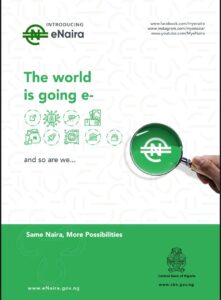By Chris Agabi
The Central Bank of Nigeria (CBN), has lifted the policy restricting Forex sales to importers of certain items that Nigeria has comparable advantage to import.
Recall in 2015, the CBN had placed at least 43 Items on Forex restrictions list because it wanted to promote local manufacturing capability and backward integration.
By the CBN in a press statement signed by Dr. Isa AbdulMumin, the Director, Corporate Communications, and issued on Thursday, October 12th, 2023 said the “importers of all the 43 items previously restricted by the 2015 Circular referenced TED/FEM/FPC/GEN/01/010 and its addendums are now allowed to purchase foreign exchange in the Nigerian Foreign Exchange Market.”
The items included: Rice, Cement, Margarine, Palm kernel/palm oil products/vegetables oils, Meat and processed meat products, Vegetables and processed vegetable products, Poultry – chicken, eggs, turkey, Private airplanes/jets, Indian incense, Tinned fish in sauce (geisha)/sardines, Cold-rolled, steel sheets, Galvanised steel sheets, Roofing sheets, Wheelbarrows, Head pans, Metal boxes and containers and Enamelware.
Others included: Steel drums, Steel pipes, Wire rods (deformed and not deformed), Iron rods and reinforcing bars, Wire mesh, Steel nails Security and razor wire.
Also banned were wood particle boards and panels
Wood fibre boards and panels, Plywood boards and panels, Wooden doors, Furniture, Toothpicks, Glass and Glassware, Kitchen utensils, Tableware, Tiles – vitrified and ceramic, Textiles, Woven fabrics, Clothes, Plastic and rubber products, polypropylene granules, cellophane wrappers, Soap and cosmetics, Tomatoes/tomato paste, Eurobond/foreign currency bond/ share purchases
Dairy/milk and Maize.
The circular by the CBN announcing the restriction had said “in the continuing effort to sustain the stability of the foreign exchange market and ensure the efficient utilization of foreign exchange and the derivation of optimum benefit from goods and services imported Into the country, It has become Imperative to exclude importers of some goods and services from accessing foreign exchange at the Nigerian foreign exchange markets In order to encourage local production of these Items.”
The CBN had said “the implementation of the policy will help conserve foreign reserves as well as facilitate the resuscitation of domestic Industries and improve employment generation.”
The CBN said the revised policy is based on its commitment to boost liquidity in Forex market.
The statement further stated that the “will continue to promote orderliness and professional conduct by all participants in the Nigerian Foreign Exchange Market to ensure market forces determine exchange rates on a Willing Buyer – Willing Seller principle.”
It said the “CBN reiterates that the prevailing Foreign Exchange (FX) rates should be referenced from platforms such as the CBN website, FMDQ, and other recognised or appointed trading systems to promote price discovery, transparency, and credibility in the FX rates.”
The statement further indicated that “as part of its responsibility to ensure price stability, the CBN will boost liquidity in the Nigerian Foreign Exchange Market by interventions from time to time. As market liquidity improves, these CBN interventions will gradually decrease.”
It said “the CBN is committed to accelerating efforts to clear the FX backlog with existing participants and will continue dialogue with stakeholders to address the issue.”
” The CBN has set as one of its goals the attainment of a single FX market. Consultation is ongoing with market participants to achieve this goal.
Experts have expressed divergent opinions on the benefits of the policy eight years of implementation. Whilst some say the policy increased self sufficiency in the production of certain items like rice, maize, toothpicks, and others. But some other experts claim the policy hasn’t attracted as much benefits as was projected by the CBN.
Breaking… 8yrs After, CBN Lifts Forex Restrictions on 43 Items
Reading Time: 3 mins read
0
Leave a Reply Cancel reply
FOLLOW US
BROWSE BY CATEGORIES
BROWSE BY TOPICS
2023 Benue Budget
Abuja-Kaduna Rail
Access Corporation
Access pension
Aviation
Ayu
Benue Budget
Benue Community
Buhari
Business
Dana Air
Economy
FAAN
FGPL
Herdsmen
Herdsmen attacks
insecurity
insurance
Kano
Lagos
Mallam Aminu Kano International Airport
Maritime
Min of Transport
MSMEs
Murtala Mohammed International Airport
NAICOM
NCAA
Nigeria
Nigeria -Cameroon Border Post
Nigeria Air
NRac
Onne Port
Orrom
Ortom
PDP
PenCom
pension
Railway
Sambo Jaji
Transcorp
Transcorp Group
Transcorp Hotels Plc
Ukohol
Wike
Wildon Ideva
Economy Footprint
The EconomyFootprint is published by Ideas Tent Communications Ltd®. All Rights Reserved.











